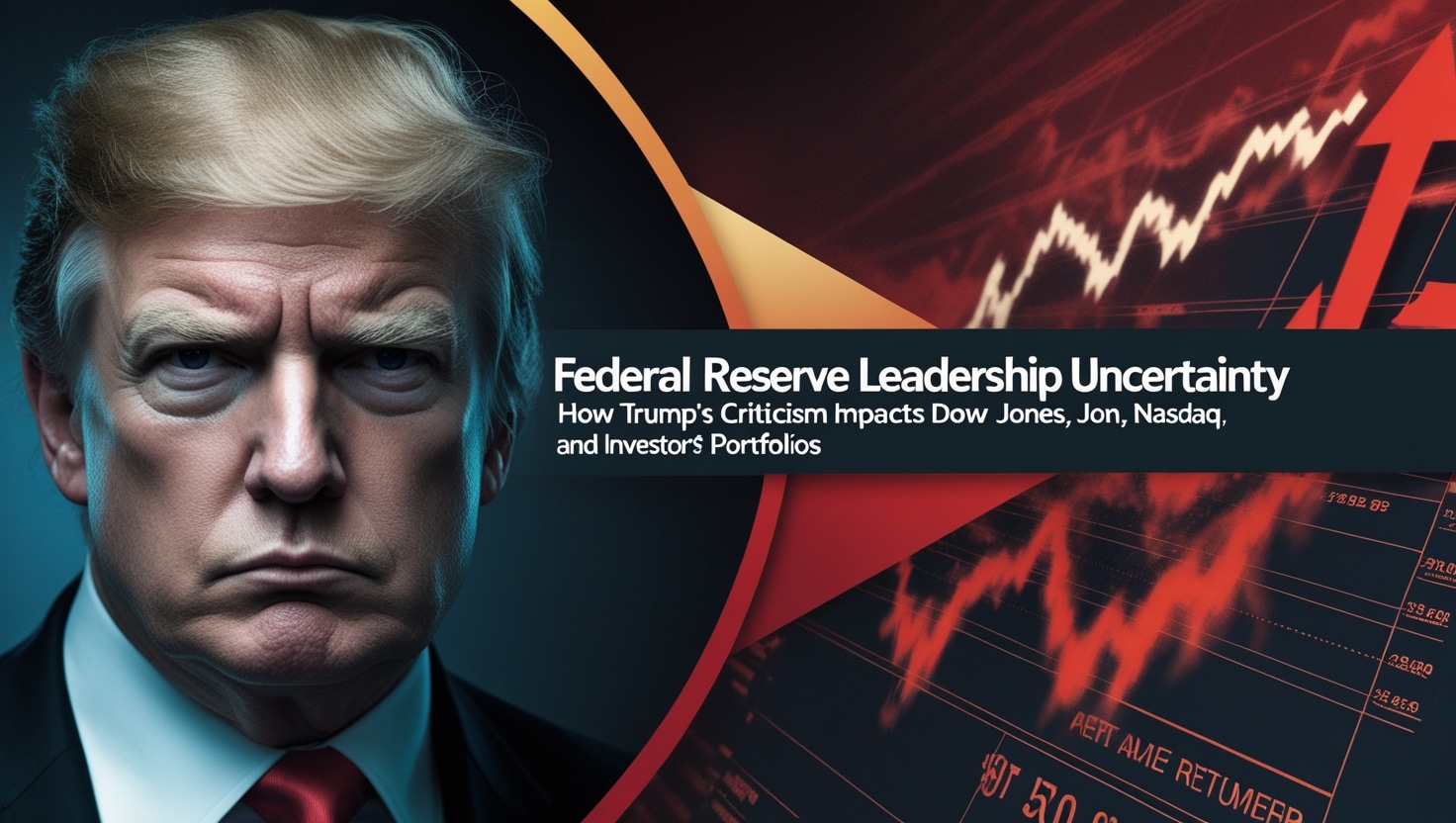
Recent developments indicate the stock market is unsettled by escalating discussions around the Federal Reserve’s leadership. Specifically, former President Donald Trump’s persistent criticism of Federal Reserve policies and Chairman Jerome Powell has caused noticeable anxiety among market participants. These criticisms have lingered into early 2025, adding to uncertainties that directly affect major indices, such as the Dow Jones Industrial Average index and the S&P 500 today.
Market Reactions and Key Indices
The influence of political narratives on the markets is nothing new. As Trump’s criticisms resurfaced this year, prominent indicators including the Dow Jones Industrial Average (DJIA) futures and the broader Nasdaq composite experienced volatility. Stocks such as nasdaq nvda and nasdaq tsla also saw swift movements, highlighting market sensitivity to Federal Reserve-related news.
My experiences in financial analysis taught me that politics and central banking rarely mingle smoothly. For instance, early in January 2025, a report by the Economic Policy Institute revealed that approximately 58% of Americans view political interference in the Federal Reserve negatively. Public apprehension around Federal Reserve independence can significantly unsettle markets, a view validated by recent declines in U.S. market futures (stock futures).
Impact on Currency and Commodities
Beyond stock indices, the power struggle between Trump and the Fed impacts other financial areas. For example, the dollar index slumped to a 15-month low, reflecting investor anxiety about monetary policy consistency. Conversely, gold—as a classic safe-haven asset—has risen sharply, exceeding $3,380 per ounce. Investors are undoubtedly responding to uncertainty by shifting their assets.
Broader Implications for the Stock Market
The implications of potential leadership adjustments at the Federal Reserve are extensive and tangible. Investors following the us stock market today should anticipate volatility in major indices such as the dow jones industrial average today as well as technology-heavy benchmarks like the nasdaq 100.
Even specific tech giants have felt ripple effects. Stocks like nasdaq aapl and fluctuations in goog stock price show that policy uncertainty deeply resonates with investors’ strategies. For anyone trading dow jones index futures and dow jones industrial futures, it’s crucial now to remain updated about potential announcements related to monetary policy.
What Investors Should Consider
Periods of uncertainty often contain hidden opportunities, but they also underscore the importance of informed investing. While these market fluctuations might seem challenging, veterans in financial markets recognize such times as windows to reassess their investment approach and diversify portfolios.
Moreover, closely monitoring indicators like the djia index and nasdaq today can provide useful insights about market direction. Diverse portfolios often withstand these cyclical political impacts better, a lesson many investors grasp too late. My mentor once humorously called this scenario “trying to read a novel on a rollercoaster.” It feels hectic, but with preparation, it’s manageable.
Conclusion: Navigating the Stock Market Amid Political Uncertainty
The stock market remains inherently reactive to political turbulence—especially concerning conversations about Federal Reserve independence. Public sentiment echoes this; economic stability interacts closely with perceptions of Fed autonomy.
Investors, as always, benefit by staying alert and adaptable. Regularly monitoring updates related to dow jones stock markets and the outlook for Federal Reserve policy can help mitigate risk. Successful investment strategies parallel informed vigilance in facing these situations; acknowledging uncertainty while strategically reacting to it.

















